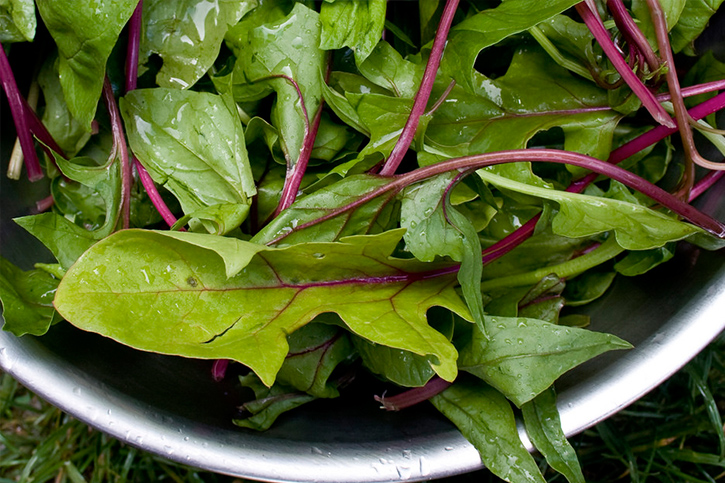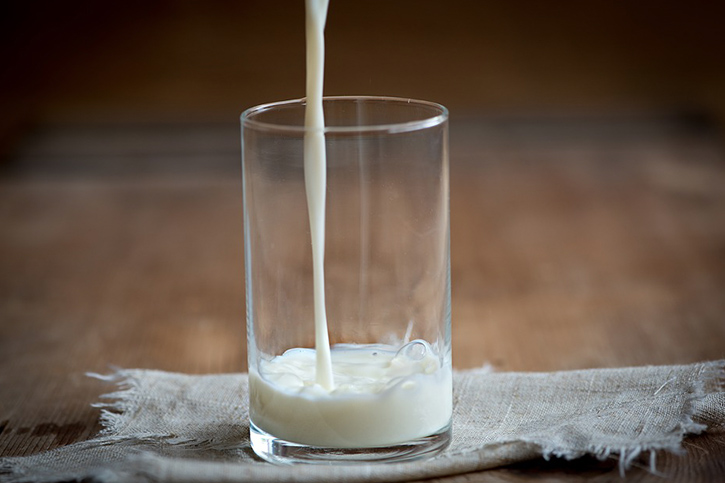The 40-odd weeks of pregnancy is a very exciting time. During this period your lifestyle will change drastically, the key reason being to ensure you and your baby are as healthy as possible.
Diet and nutrition are one of the most important factors here, alongside keeping active, gaining the right amount of weight, and steering clear of smoking, alcohol and other lifestyle choices that may be detrimental to your baby’s health and development.

Your diet is likely going to change quite a bit when you get pregnant. Here is a helpful guide to nutrition during pregnancy.
Regardless of whether it took you by surprise, or whether you’ve been planning for some time, your diet will likely change quite a bit once you find out you are pregnant. You are essentially eating for two, and developing healthy eating patterns is very important.
This doesn’t mean you need to make any drastic changes to your lifestyle (unless your eating habits are particularly bad), but rather you can take the opportunity to make lots of small changes – if anything it’s a great opportunity to implement the healthy eating regimen that you’ve always wanted!
Here are a few nutrition tips to help you along the way. And be sure to discuss them with your obstetrician during your antenatal checkups!
The Importance of Iodine
Iodine is an essential nutrient for your baby’s development. Iodine intake requirements increase during pregnancy as it aids with brain development and foetal growth. Intake from your normal diet can be difficult – iodine is found in seafood, and in some vegetables, but it often depends on where and how they are grown – so taking supplements is recommended. The suggested intake before and during pregnancy is around 150 micrograms.
Ensure You are Getting Enough Folic Acid
Folic acid is another essential vitamin before and during pregnancy. Folate is a B vitamin that is found in some foods and can also be taken as a supplement. It is important for the development of your baby’s brain and spinal cord and reduces the risk of neural tube defects (spina bifida).
Folate-rich foods include leafy green vegetables, fruit and beans. Folate is also found in some breakfast cereals, bread and pasta. However, to ensure you are getting enough, supplements are recommended to ensure your advised daily intake is met. You need to be getting at least 400 micrograms of folic acid a day for the first three months.
Other Vital Nutrients During Pregnancy
Aside from iodine and folate, there are a number of important vitamins and minerals that you should be keeping track of during your pregnancy. These are all fairly basic nutrients that you can consume with a varied diet.
Protein
While you are pregnant, your protein requirements will be higher due to the added strain of foetal growth. Unlike other vitamins and minerals, protein is not found in multivitamins or other pill supplements, so it is important to ensure you are getting enough from your food, particularly in your second and third trimesters (this is when your baby is growing the fastest).
Depending on your weight, protein requirements will vary between 40 and 70 grams a day. You can get these from lean meat (such as chicken breast), dairy, oats, legumes, eggs, broccoli, and soy products.
Iron
While you are pregnant, your iron requirements increase quite a bit – around 50%. Iron is vital in the formation of haemoglobin, which is the oxygen-carrying protein on red blood cells. And in the second and third trimesters, this is particularly important for carrying oxygen and other nutrients to your baby.
You’ll need at least 27 mg of iron every day during your pregnancy. This can be found in foods such as kidney beans, lentils, soybeans, lima beans, beef and chicken liver, green vegetables (like spinach and broccoli) and dried fruit. You may want to take an iron supplement to ensure you are getting enough each day.
Fibre
Being pregnant isn’t great for digestion. Constipation and haemorrhoids are common and can make the whole experience quite uncomfortable. This can be remedied by a high-fibre diet. Pregnant women are recommended to consume around 25 to 30 grams of dietary fiber each day. This includes both soluble and insoluble fibre.
Insoluble fibre does not dissolve in the digestive tract. Rather, it swells to form a gel-like substance, which helps slow down and regulate digestion. Good sources of insoluble fiber include oats, barley, nuts, seeds, beans, lentils, peas, and some fruits and veggies.
Soluble fibre increases the bulk of stool, making it easier to pass through the intestinal tract. Good sources of soluble fibre include grains such as oats and rye, fruits like bananas and apples, legumes, like black beans and chickpeas, and root vegetables like carrots and potatoes.
Fibre is also beneficial during pregnancy because it helps prevent glucose intolerance, which can be a contributing factor to gestational diabetes, and lower blood pressure, one of the key risk factors of preeclampsia.
Calcium
Calcium is necessary for the development of your baby’s bones and teeth, heart, nerves, and muscles as well as develop a normal heart rhythm and blood-clotting abilities. Normally you require around 1,000 milligrams a day, but during your pregnancy you will need closer to 1,300 milligrams during all three trimesters (and while you are breastfeeding).
Aim to consume around 3 cups of dairy or other calcium-rich foods per day. Milk is obviously an excellent source (soy or low fat is fine), as is low-fat yoghurt, cheese, cottage cheese, kale, bok choy, canned sardines or tuna, okra, and almonds.
Healthy Fats
Fat is necessary for the development of your baby’s brain, eyes, immune system and central nervous system. However, not all fats are created equal, so knowing what kind you are consuming is very important.
Unsaturated fats, such as polyunsaturated fats and monounsaturated fats, are crucial during pregnancy. They are rich in things like omega-3 fatty acids, which are very good for you, and folic acid, which as we know is very important. Good sources of unsaturated fats include salmon, nuts, avocado, olive oil, canola oil, flaxseed and walnuts.
Saturated fats, like those found in meat and dairy products, are not beneficial for your body in the way that unsaturated fats are. However, because the foods that they are found in contain nutrients that are crucial during pregnancy (such as protein and calcium), they are ok in moderation.
Trans fats, like those found in packaged foods, frozen dinners, and fast foods have no benefits for your baby and are quite detrimental to your health (contributing to conditions such as high cholesterol). They should be avoided completely.
Your pregnancy can be an overwhelming time, but amidst all the excitement it is very important that you get all the nutrients required for your health and the growth and development of your baby.
If you have any question about your pregnancy, or about getting pregnant, please don’t hesitate to get in touch. We will strive to give you advice and compassionate care in every way possible.

